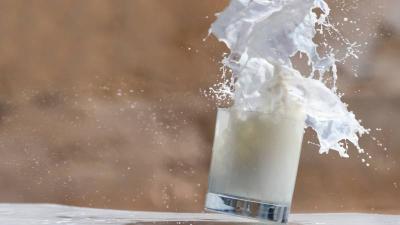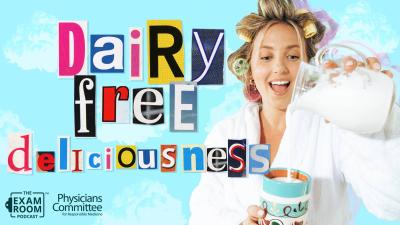White Lies? Five Milk Myths Debunked

Last month, a study was called into question for suggesting that chocolate milk could be beneficial for teens recovering from concussions.
Not surprisingly, the study was funded by the dairy industry. For decades, milk marketers have been spreading misleading information about the supposed health benefits of dairy products.
Thanks to these marketing campaigns, milk myths abound in our culture. But science doesn’t support them. Let’s take a look at five common claims about dairy products:
Myth 1: Milk builds strong bones.
The dairy and bone health link is one of the most pervasive milk myths. One large-scale Harvard study followed 72,000 women for two decades and found no evidence that drinking milk can prevent bone fractures or osteoporosis. Another study of more than 96,000 people found that the more milk men consumed as teenagers, the more bone fractures they experience as adults. Similarly, another study found that adolescent girls who consumed the most calcium, mostly in the form of dairy products, were at greater risk for stress fractures than those consuming less calcium.
Myth 2: Drinking milk can help you lose weight.
While advertisers would like you to believe that drinking milk can slim you down, studies consistently show that dairy products offer zero benefits for weight control. One major study even found that dairy products might lead to weight gain. In 2005, the Physicians Committee petitioned the FTC to put an immediate end to the dairy industry’s misleading campaigns about milk and weight control. In response, the government no longer allows advertising campaigns to claim that dairy products lead to weight loss.
Myth 3: Milk is “nature’s perfect food.”
Cow’s milk might be ideal for growing baby cows, but it’s far from a perfect food for humans. More than 60 percent of people are lactose intolerant, which can lead to uncomfortable symptoms like cramping, diarrhea, and bloating. Regular consumption of dairy products has also been linked to prostate cancer, lung cancer, breast cancer, and ovarian cancer.
Myth 4: Kids need milk to be healthy.
After babies are weaned from breast milk or formula, they do not need any type of milk to be healthy. Milk consumption during childhood has even been linked to colic and type 1 diabetes. Another study found no evidence that low-fat milk plays any role in preventing childhood obesity.
Myth 5: Milk is heart-healthy.
Milk and other dairy products are the top sources of artery-clogging saturated fat in the American diet. Milk products also contain dietary cholesterol. Diets high in fat, saturated fat, and cholesterol increase the risk of heart disease, which remains America’s top killer.








